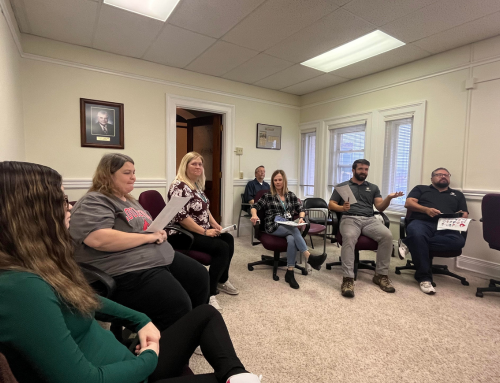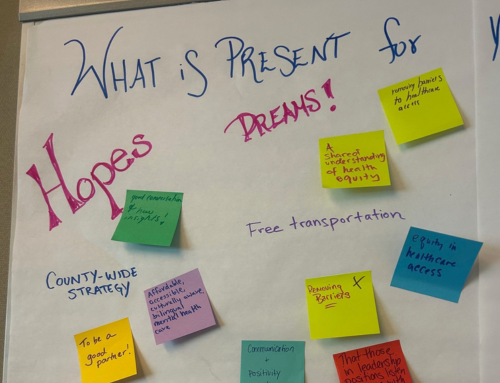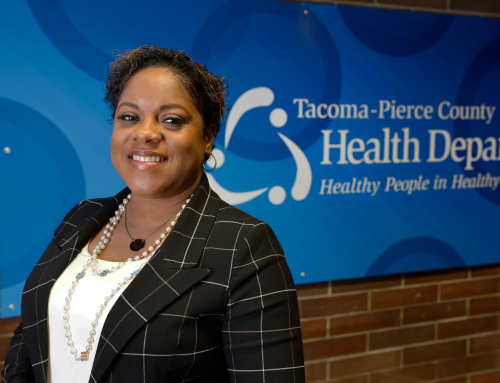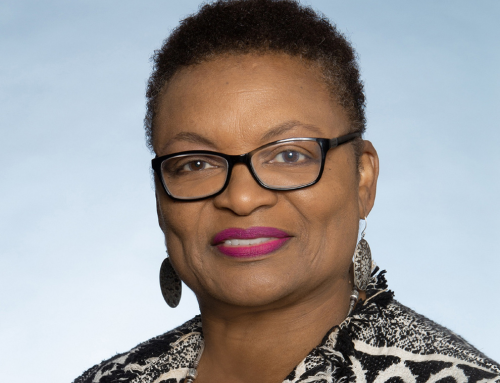Public health plays a big role in protecting the community on a day-to-day basis, which includes having safe drinking water, being able to shop at the grocery store, or just living safely in our communities. However, for Tribal health departments serving Indigenous populations public health means addressing unique needs and ways of living within their communities that presents challenges that some in the city may not experience.
In Wisconsin, the Forest County Potawatomi Community Health and Oneida Nation have embraced accreditation to demonstrate their commitment to their communities’ health. Led by dedicated professionals like Jodie Harris, Michelle Tipple, and Mollie Passon, these Tribal health departments have undergone the thorough accreditation process to show the importance of public health.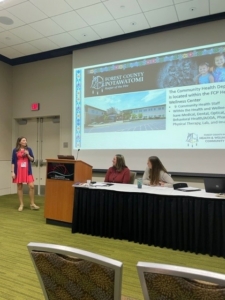
Harris, the Community Health and Accreditation Coordinator of Forest County Potawatomi Community Health, has been with the Tribe since 2003; she stepped into her current role in 2016.
Forest County Potawatomi Community Health serves a small rural area that holds the distinction of being the only county in Wisconsin without traffic lights. The county has three schools with graduating class sizes ranging as small as 12 students and few reaching up to 60 students. In 2019, Forest County achieved accreditation through the Public Health Accreditation Board (PHAB).
Harris admits that it can sometimes be hard to document everything that’s going on because you’re doing the day-to-day work but it’s important, so she thanks PHAB for pushing them to keep their data up to date.
Harris jokingly said PHAB is like “Big Brother” because they’re always watching but it’s to ensure departments are putting their best foot forward. The PHAB Annual Report is a way for health departments to demonstrate the great work they are doing every day and prepare for reaccreditation.
“It gives us a way to make sure we are doing what we say we do,” said Harris. She added that another upside to accreditation is that it gives them credibility when applying for grants.
PHAB’s accreditation process demands evidence of impactful work that addresses the specific needs of the community. By achieving accreditation, Tribal health departments like Forest County Potawatomi Community Health and Oneida Nation can demonstrate their accountability and their dedication to their communities.
“If you’re looking for a way to keep yourself accountable, accreditation is the way,” said Harris.
Tipple, the Community/Public Health Officer of Oneida Nation, recalls the challenges they faced during the accreditation process. As the accreditation coordinator at the time of Oneida’s initial accreditation, Tipple led the efforts to communicate how their department’s approach to public health differed from those in urban areas.
Current Accreditation Coordinator for Oneida Nation, Passon said the Tribal communities get together three to four times per year, which helps them all push towards improved public health for every Wisconsin Tribe.
The road to accreditation was not an easy one. It required a 4 1/2-year process for Oneida Nation to achieve this milestone. Yet, the effort was worth it.
“We brought staff along as we went. It was a lot of learning along the way,” said Tipple.
Accreditation has allowed Wisconsin Tribal health departments to communicate their impact on public health and emphasize its significance.
Tipple said the Oneida team pushes for “a culture of quality.” Everything that they do has a process and results in Oneida asking their community how they can improve based on their current data, in thanks to PHAB.
By partnering with organizations like PHAB, which provide platforms for sharing the stories of those who work in public health, they can communicate the importance of their work to a wider audience.
“[Accreditation] allows for Tribes to tell their stories,” said Tipple.
The accreditation journey undertaken by the Forest County Potawatomi Community Health and Oneida Nation speaks volumes about their dedication to improving public health outcomes for their unique populations.
Led by inspiring individuals like Harris, Tipple, and Passon, these Tribal health departments have navigated the challenges and complexities of the accreditation process. Their achievements can be seen as a blueprint for other Tribal health departments to follow.
“When you have a strategic plan, you have goals and you know what you’re searching for,” said Harris.
“[Accreditation] allows for Tribes to tell their stories.”
Michele Tipple, Oneida Nation

